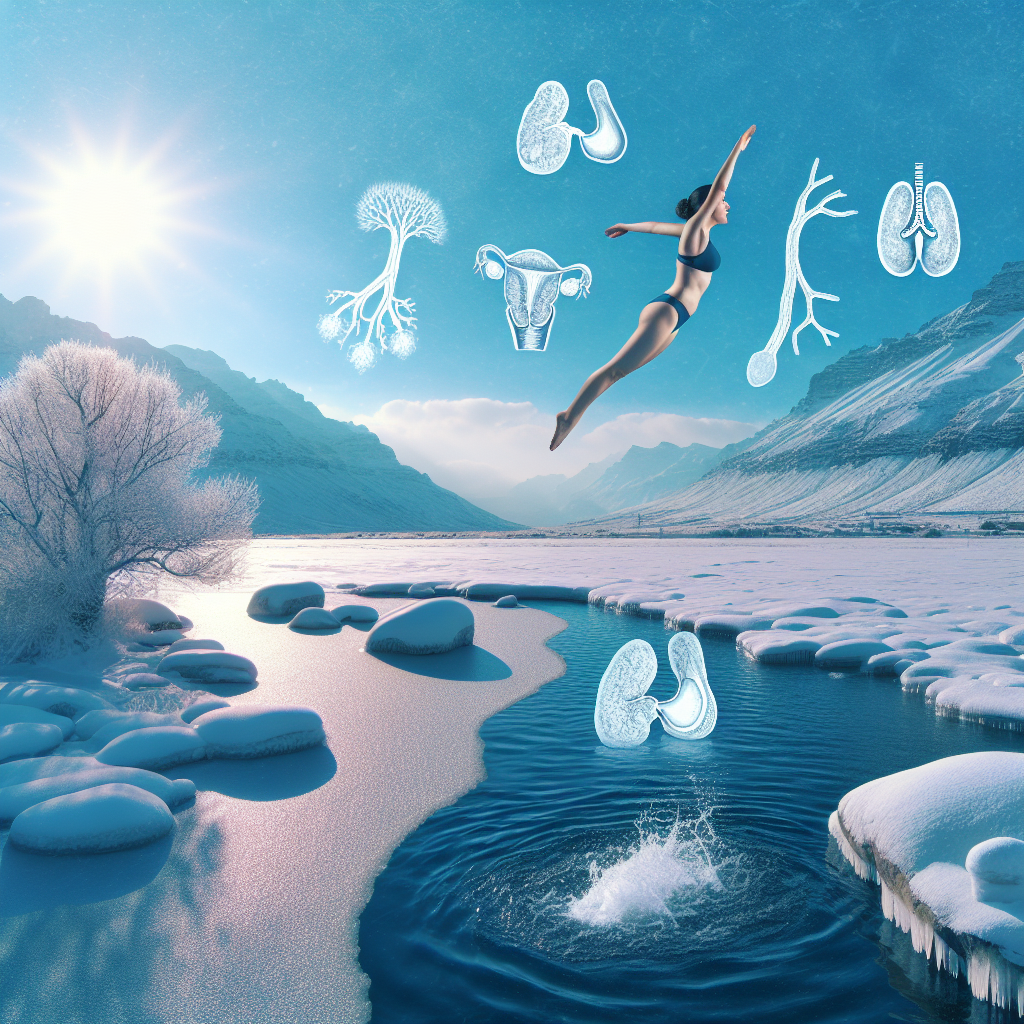Picture this: it’s a brisk winter morning, you step outside and a wave of cold air hits your face. You shiver, the chill seeping into your skin. Though you may do your best to avoid it, did you know this cold exposure may play a key role in balancing your hormonal health? This intriguing article titled “Exploring The Link Between Cold Exposure And Hormonal Balance” takes you on an educational journey to unravel this fascinating connection. So gear up and prepare to learn more about your body’s own sophisticated mechanics, and discover how the cold may be more friend than foe to your hormonal balance!’,

The Basics of Hormonal Balance
Hormonal balance is an essential aspect of maintaining a healthy and fully functional body. Just like an orchestra, every hormone has a part to play, and even the slightest imbalance can disrupt the entire symphony of your body functions. Hormones control various processes in your body, ranging from metabolism, growth, mood, and sexual function to sleep patterns and immune response.
The Importance of Hormonal Balance
Maintaining hormonal balance ensures all your body systems function in harmony. Each hormone has a specific task within the body, and for these tasks to be carried out seamlessly, the hormones need to be at optimal levels. When they are not, it might lead to various health issues such as infertility, weight gain, depression, fatigue, insomnia, low immunity, and much more.
Common Hormonal Imbalances
Common hormonal imbalances may occur in insulin, thyroid hormones, sex hormones, and adrenal hormones among others. For instance, if your body is producing too much insulin, you might develop conditions such as type 2 diabetes or polycystic ovary syndrome (PCOS). On the other hand, an underactive thyroid gland can lead to hypothyroidism, a condition characterized by fatigue, weight gain, and depression.
Effects of Cold Exposure on Hormones
Exposure to cold temperatures has been found to have significant effects on the human hormonal balance. This has created a growing interest in the benefits of cold showers, ice baths, and other cold therapies.
Activation of the Sympathetic Nervous System
Cold exposure activates the sympathetic nervous system, often referred to as the ‘fight or flight’ system, leading to the release of stress hormones such as adrenaline and noradrenaline. These hormones increase heart rate, blood pressure, and blood sugar levels, preparing your body for a sudden burst of energy.
Release of Stress Hormones
The release of stress hormones is One of the body’s key responses to cold exposure. Adrenaline and cortisol, among other stress hormones, surge through the body triggering a series of potential actions including high alertness, heightened senses, and temporary increased force of muscle contractions.
Influence on Sex Hormones
Cold exposure also affects sex-related hormones. It stimulates the production of testosterone, which can boost fertility in men. However, women may experience the opposite effects, as cold exposure can disrupt the menstrual cycle.
Cold Exposure and the Thyroid Gland
The thyroid gland plays a crucial role in maintaining hormonal balance by controlling metabolic functions in the body.
The Role of the Thyroid Gland in Hormonal Balance
The thyroid gland produces hormones that regulate the body’s metabolism, determining how fast or slow the body uses energy. When the thyroid gland is exposed to cold, it can trigger complex hormonal responses to help the body maintain its core temperature.
Cold Exposure and Thyroid Hormone Production
Cold exposure stimulates the thyroid gland, leading to increased production of thyroid hormone which helps regulate the body’s metabolism and energy production. This can lead to increased energy usage and, ultimately, weight loss.

Cold Exposure and Adrenal Hormones
Cold exposure can impact adrenal hormones which play a critical role in regulating stress response, metabolism, and immune system.
Connection Between Cold Exposure and Adrenal Hormones
Cold exposure triggers a stress response in the body, leading to the release of adrenal hormones like adrenaline, noradrenaline, and cortisol. These hormones prepare the body to respond to the stress of cold exposure.
Release of Cortisol in Response to Cold
One of the main adrenal hormones released in response to cold exposure is cortisol, the body’s primary stress hormone. Cortisol influences your body’s capacity to cope with the stress caused by the cold by helping with fats, proteins, and carbohydrates metabolism to produce energy.
Impact of Cold on Other Adrenal Hormones
Besides cortisol, other adrenal hormones such as adrenaline and noradrenaline are also released in response to cold. These hormones trigger heart rate and blood sugar increase, providing the body with extra energy to warm up.
Cold Exposure and Sex Hormones
Exposure to cold can significantly influence sex hormones, which are crucial for sexual development and reproduction.
Effects of Cold Exposure on Testosterone Levels
Cold exposure can stimulate the production of testosterone, the main sex hormone in men. There are studies that suggest a correlation between cold exposure and increased levels of testosterone, which is beneficial for sexual health and overall energy levels.
The Relationship Between Cold Temperature and Fertility
For men, cold exposure can result in enhanced testosterone levels and potentially improved fertility. However, for women, exposure to cold conditions can disrupt hormonal balance leading to irregular menstrual cycles and potential issues with fertility.
Impact on Estrogen and Progesterone
Just as cold exposure can affect testosterone levels in men, it can also have a significant impact on female sex hormones, estrogen, and progesterone, that regulate menstrual cycle, pregnancy, and other bodily functions.
The Immune System and Hormonal Balance
Your immune system plays a crucial role alongside hormones in maintaining overall health. Studies suggest that cold exposure may have positive effects on the immune system.
Cold Exposure and Immune System Response
Cold exposure can activate your immune system, increasing the number of white blood cells and other disease-fighting agents in your body. This can enhance your body’s ability to ward off infections and disease.
Interplay Between the Immune System and Hormones
Beyond activating the immune response, cold exposure also impacts hormones that interact with the immune system, such as cortisol and adrenaline. These stress hormones are immune-modulating, meaning they can either trigger or suppress immune activities.
Cold Exposure and Sleep Hormones
Sleep hormones play a significant role in determining your quality of sleep. Cold exposure could affect these hormones, influencing your sleep patterns.
Correlation Between Cold Exposure and Melatonin
Cold exposure has been found to boost melatonin production, a hormone that regulates sleep and wakefulness. Regular cold showers or ice baths can therefore contribute to better sleep quality and consistency.
Influence on Sleep-Wake Cycle and Circadian Rhythm
By influencing melatonin production, cold exposure can affect the sleep-wake cycle and circadian rhythm, your body’s internal clock. This can lead to improved sleep quality and overall better health outcomes.
Cold Exposure and Appetite-Regulating Hormones
Cold temperatures might have an impact on your appetite and eating habits by affecting appetite-regulating hormones like leptin and ghrelin.
Effects on Leptin and Ghrelin Levels
Cold exposure can influence the secretion of leptin and ghrelin, hormones that regulate hunger and satiety. This change could potentially alter your feelings of hunger and fullness, impacting weight management.
Potential Impact on Hunger and Satiety Signals
As a result of changes in leptin and ghrelin levels, cold exposure could modulate your hunger and satiety signals, potentially aiding in weight loss or maintenance.
Cold Exposure and Growth Hormone
Growth hormone has far-reaching effects on the body, and cold exposure can stimulate its release.
Stimulation of Growth Hormone Release
Cold exposure can promote the release of growth hormone, which helps regulate body composition, body fluids, muscle and bone growth, and sugar and fat metabolism.
Role of Growth Hormone in Metabolism and Tissue Repair
The release of growth hormone can have a profound effect on your metabolism and tissue repair. Studies have linked the increase of growth hormone with enhanced fat burning and improved recovery from injuries.
Cold Exposure and Inflammation
One of the most promising impacts of cold exposure is its potential to suppress inflammation, a root cause of many health issues.
Suppression of Pro-Inflammatory Cytokines
Pro-inflammatory cytokines are proteins that promote inflammation. Recent studies have found that cold exposure could suppress these cytokines, reducing inflammation and possibly protecting against many inflammatory diseases.
Possible Benefits for Chronic Inflammation
This suppression of pro-inflammatory cytokines could be beneficial for individuals suffering from chronic inflammatory conditions. While more research is necessary to fully understand these potential benefits, it’s clear that exposure to cold can play a crucial role in the complex symphony of hormonal balance.
